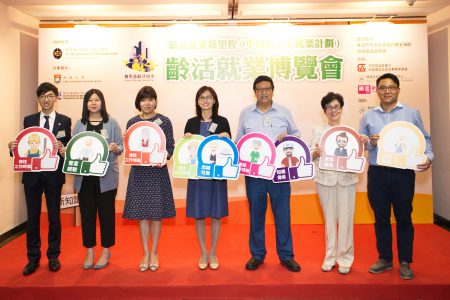New Employment Journey for Senior Citizens – Encouraging age



Identifying the need to promote age-friendly employment practice, the Wan Chai Methodist Centre for the Seniors organized the New Employment Journey for Senior Citizens programme that aims to enhance employment knowledge and skills and to create employment opportunities for middle-aged and older job seekers. The programme was supported by the Jockey Club Age-friendly City Project and implemented in collaboration with the District Council and several social enterprise and district older adult centres.
The programme organized 20 hours of training that provided job seekers the latest employment information and equipped them with job searching and interview skills. Some interested participants further enrolled in a placement-tied course in catering service or office support. The course in catering service equipped them with basic knowledge of food safety and hygiene, skills as waiters/waitresses, and practical Mandarin and English. The components of the course in office support included handling phone calls, operating office equipment, filing, performing outdoor duties, and practical English and Mandarin. Following the practical job training, trainees were matched to a 40-hour placement that further enhance their job skills and employment opportunities. A job fair was held and provided a platform for elderly job seekers to get employment information. Twelve organizations set a booth in the job fair that allowed elderly applicants to have on-the-spot interviews.
Website: http://www.jcafc.hk/en/events/225-wc-prog08
Main target group: Older people in general
Other target group(s): Employers and the general public
Sector(s): Information and communication, Labor
Desired outcome for older people:
Contribute